“Maternal mortality health is a very sensitive indicator. All you need to look at is a country’s maternal mortality rate. That is a surrogate for whether the country’s health system is functioning. If it works for women, I’m sure it will work for men.” — Margaret Chan (Director General of World Health Organisation 2006-2017)
By Joan Chioma Obinagwam
Data mined from the World Bank shows a maternal mortality ratio of 1,047 deaths per 100,000 live births as of the year 2020.
More so, data from MacroTrends showed that Nigeria maternal mortality rate for 2020 was 1,047.00, a 6.68 percent decline from the 1,122.00 recorded in 2019.
Although there was a decline from previous year, it is important to note that maternal mortality rates can fluctuate and are influenced by various factors, including healthcare access, economic conditions, and public health initiatives.
According to MacroTrends, a research platform that enables users to screen and research stocks, commodities, precious metals, oil, gas, global metrics, maternal mortality ratio is the number of women who die from pregnancy-related causes while pregnant or within 42 days of pregnancy termination per 100,000 live births.
Confiance News gathered that the data are estimated with a regression model using information on the proportion of maternal deaths among non-AIDS deaths in women ages 15-49, fertility, birth attendants, and Gross Domestic Products (GDP).
The above data underscores the need and urgency to tackle the maternal mortality scourge in Nigeria.
Reacting to the statistics of Africa’s healthcare systems, the Director, Health Systems at PharmAccess, Dr. Kwasi Boahene, in a webinar held for health journalists in January, stated,”Africa has 16 percent of the world’s population
47 percent of the diseases in the world happen in Africa. Only two percent of their budget is spent on healthcare.”
He also frowned at the low budget allocated to healthcare by Nigeria.
“Nigeria is spending four percent,” he said.
Dr Boahene, however, stated that health insurance is a viable tool that can be explored to close the healthcare gap in Africa. He pointed that charity alone cannot solve Africa’s health issues.
He, however, advised governments and corporates to invest in it.
The Ogun State government appears to be one of the few states in Nigeria that have heeded to the advice through the establishment of the Ibidero Health Insurance scheme.
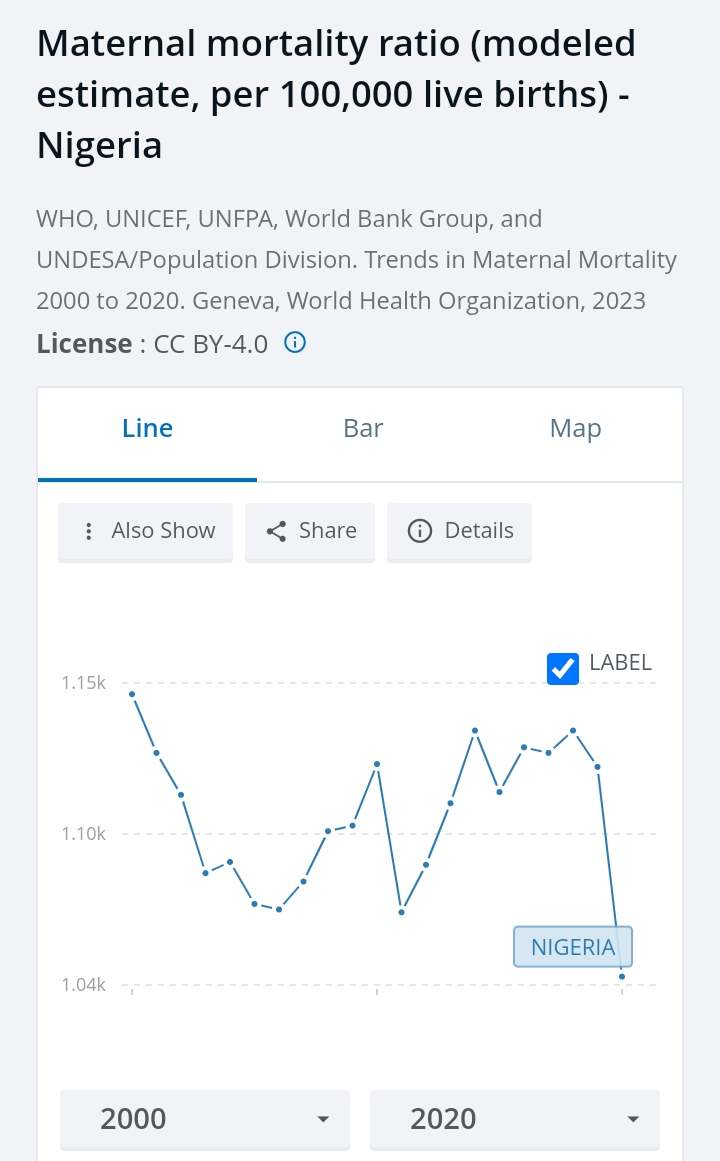
The Ibidero scheme, a strategic initiative by the state government, stands as a testament to the unwavering commitment to combat maternal mortality. This pioneering program, which translates to “safe delivery,” is not just a policy but a lifeline extended to thousands of expectant mothers. It encapsulates a vision where childbirth is devoid of fear and pregnant women are assured of a future filled with hope. As we delve into the intricacies of this scheme, we witness a confluence of compassion and innovation, a synergy that seeks to turn the tide against the challenges of maternal healthcare in Ogun State and in Nigeria.
Beacon of hope
Launched in November 2023, the scheme targets vulnerable indigent pregnant women across the 20 local government areas of the state.
Under this scheme, enrolled pregnant women have access to free maternal health services at their assigned health centers, which helps reduce the risk of complications during or after pregnancy. The program also includes a conditional cash transfer component, where the women receive a stipend after delivering their babies at the assigned health facility.
According to the Ward Health Chairman (WHC), Ward 5 in Ogun State, Olaonipekun Okunowo, “Registration started around mid-February 2024. But Details of the programme was communicated around December 2023.”
It is worthy of note that data from the Ogun State Health Insurance Agency (OGSHIA) states that the state government had earlier launched an Informal Sector Health Insurance Scheme and the Basic Health Care Provision Fund (BHCPF) programme on February 3, 2022.
The BHCPF, Confiance News gathered, is a social health intervention fund that is targeted at providing basic health care services to the vulnerable crop of people – such as pregnant women and children under the age of five, as well as the indigent people in the society.
However, the distinguishing factor between the BHCPF is that it is a federal government sponsored programme whereas the Ibidero scheme is exclusive to the state.
More so, Ibidero scheme is only for pregnant women resident in the state whiles the BHCPF covers not just pregnant women but the indigent in the state.
Reacting further on the eligibility of Ibidero, Okunowo noted that the beneficiaries are expected to be pregnant women between their first trimester and last trimester.
“The insurance covers the enrollee till the delivery happens. Initially, the enrollee would be in the first trimester (three months), but it was extended to seven months old pregnancy,” he explained.
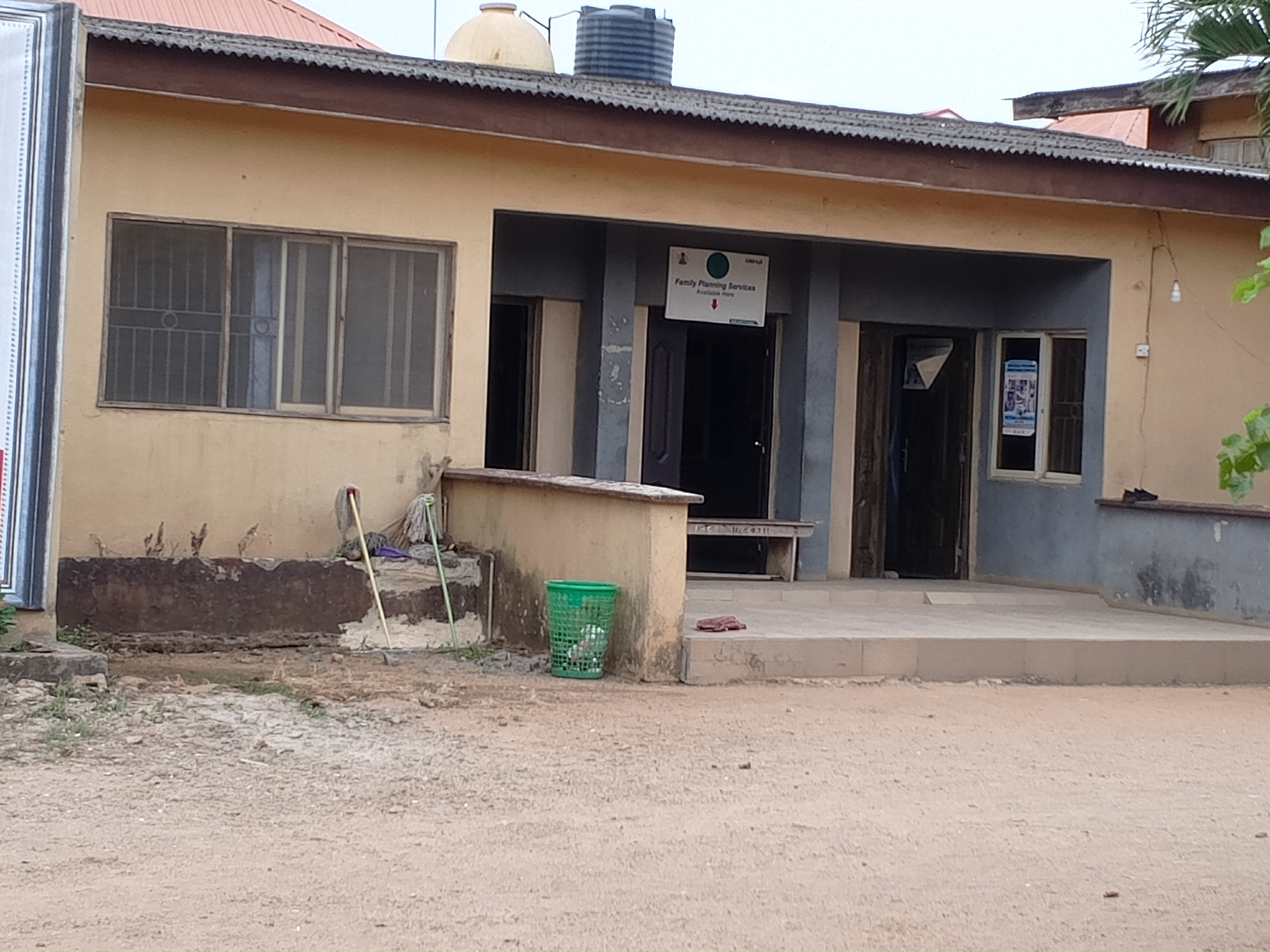
Reactions
Just like in most insurance schemes, there are testaments of beneficiaries. Ibidero Health Insurance scheme is no exception. For Adeshina Seun Ayomide, she had her prenatal covered up to the delivery of her child at Ajuwon Primary Health Centre (PHC). Ajuwon PHC is situated in Ward 6 of Ifo LGA.
“I didn’t pay any money from the time I registered at the hospital till when I delivered. Even the tests and scans were free,” Ayomide said.
Another beneficiary, a pregnant woman known as Comfort Akoh, who had difficulty accessing Ibidero at Ajuwon PHC owing to the limited number of slots available as at the time she visited the PHC, received prenatal care at Ojodu-Abiodun Abiodun PHC.
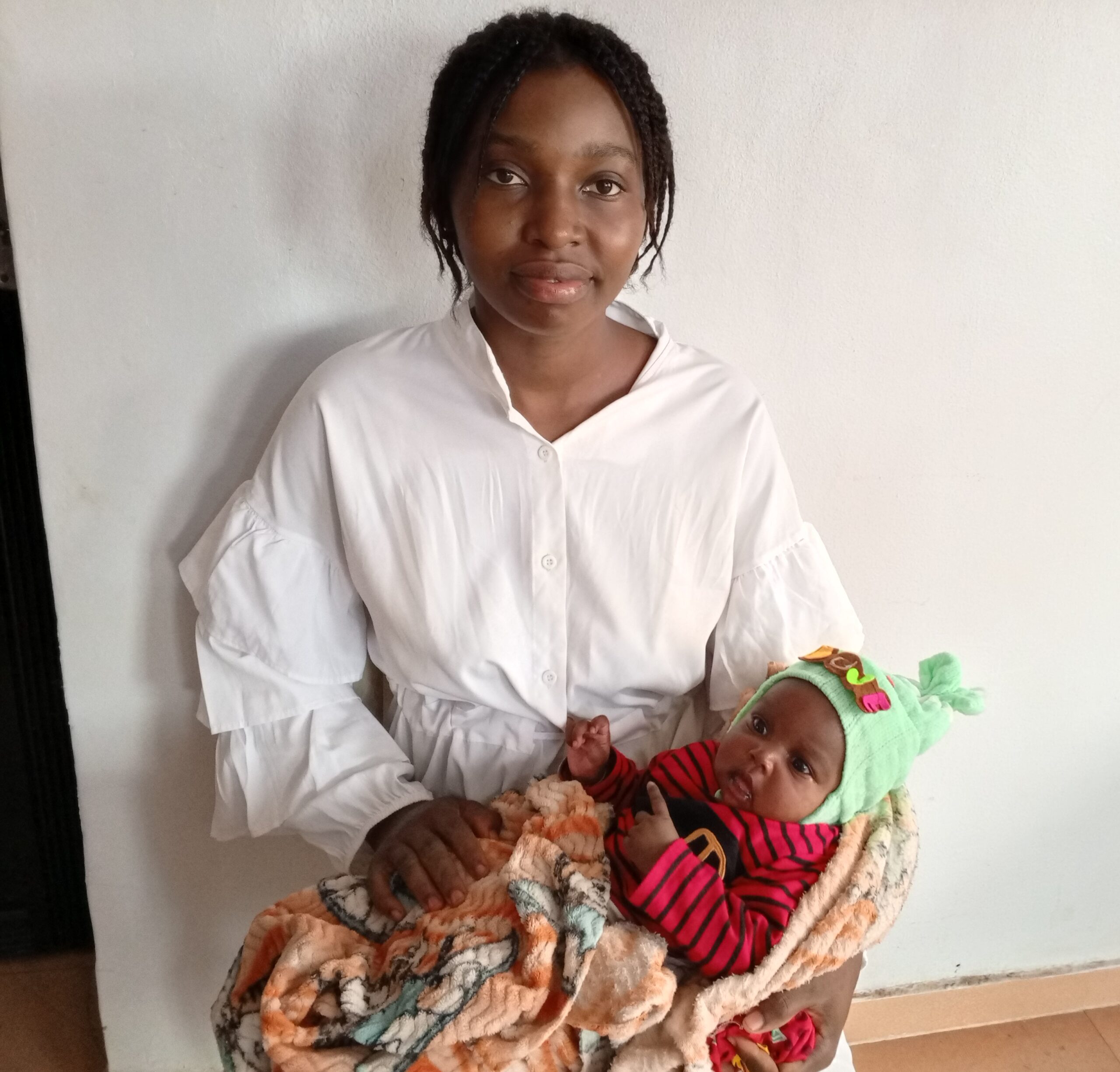
“I heard about Ibidero from my friend who was pregnant at Ajuwon PHC. But, when I went there, I was told that there is only 10 slots for Ibidero at Ajuwon and the slots have been taken.” she lamented.
“It was through the help of my madam that is a journalist that I knew about Ojodu-Abiodun health center. She told me to go there. They will attend to me. I went there and was given free treatment,” she continued.
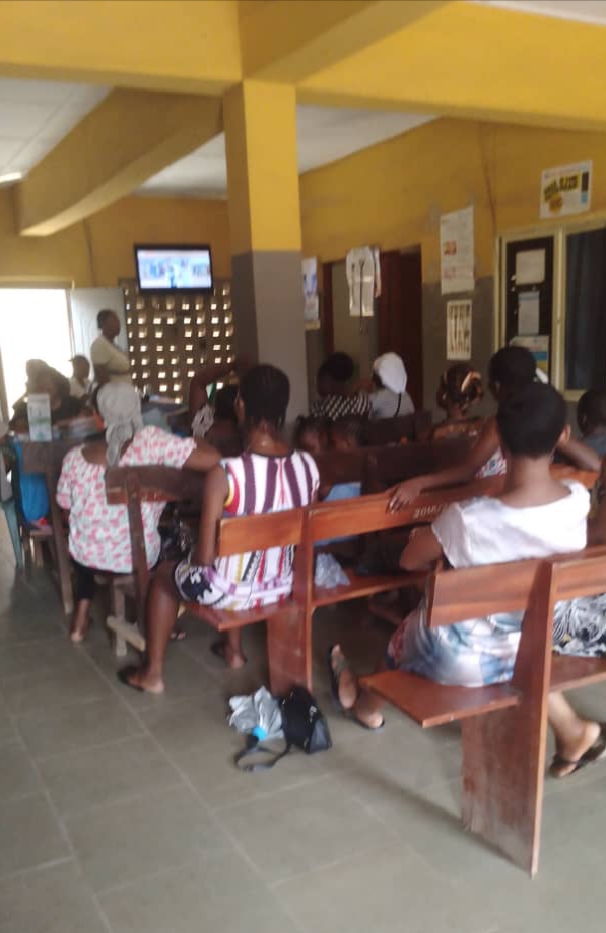
Steep path
Just like other health insurance schemes globally, Ibidero is not without challenges. According to Okunowo, one of the major challenges faced by the scheme is acceptability of the scheme.
In Okunowo’s words,”The major challenge is people’s slow pace in embracing the programme.”
Although, the state is addressing this through community platforms, Public Health Centers (PHC) across all wards within the state in addition to exploring the mass media, more needs to be done for the programme to gain traction.
Okunowo also outlined other challenges begging for attention,
“Challenges in Ward 5 are:
The ward is closer to Lagos state and as a border town, residents wants same service as Lagos state.
Residents are largely Lagos state workers and just residents in Ward 5.
They rely more on private hospitals or general hospitals.
The economic situation is an impedance to child bearing. So less get pregnant.”
Agreed that pregnant women in Ward 5 may prefer private and general hospitals to PHCs owing to their proximity to Lagos State. How about those living in rural areas, like the one in Ajuwon where dozens of pregnant women are willing to embrace the programme yet they cannot access it because the slots available to them are limited?
Investigations by Confiance News showed that Ifo LGA ward 5 was initially given 30 slots and later another 34 was added to it to make it 64 slots.
Further investigations show that lack of advanced equipment and availability of standby doctors are factors discouraging pregnant women from accepting the programme.
There is no gain saying that customer service is a major ingredient in the success of healthcare. How well a patient is treated and the ease of resolution of queries can also impact acceptability of health insurance programmes like Ibidero.
Buttressing on the importance of customer care in improving health systems, Dr. Boahene said,”Customer care is as important as the technical care.”

Exploring other success stories
Addressing the challenges of low awareness, acceptability, infrastructure, and inadequate personnel in health insurance schemes is crucial for African governments. Here are five case studies that highlight how some governments have tackled these issues:
Rwanda’s Community-Based Health Insurance (CBHI): Rwanda has achieved remarkable success with its CBHI, known as Mutuelles de Santé. The government’s efforts in raising awareness through community workers and integrating the CBHI into the existing health infrastructure have led to high enrollment rates and improved healthcare access.
Ghana’s National Health Insurance Scheme (NHIS): Ghana’s NHIS has addressed the challenge of acceptability by incorporating traditional medicine services, which are widely accepted by the population. This inclusion has increased the scheme’s popularity and usage.
Kenya’s National Hospital Insurance Fund (NHIF): Kenya has expanded its NHIF coverage by upgrading healthcare facilities and investing in telemedicine to overcome infrastructure challenges. This has allowed for better service delivery, even in remote areas.
Tanzania’s Improved Community Health Fund (iCHF): Tanzania has reformed its CHF to become the iCHF, focusing on improving the quality of care by ensuring that health facilities are well-staffed and equipped. The government has also implemented an electronic enrollment system to streamline the process.

Closing Ibidero’s gaps
Having established that the women are not eager to embrace the Ibidero scheme, exploring implementable solutions towards achieving the programme would not be out of place in this context.
Addressing the challenge of low awareness would require the Ogun State government to explore avenues such as utilizing religious leaders and organisations, Community Development Associations (CDAs), the market place, non-governmental organisations (NGOs), holding town hall meetings in its enlightenment campaign of the Ibidero Health Insurance scheme.
More so, there should be equity in allocation of slots in all the wards and LGAs. In fact, the wards that are in the rural areas should enjoy more slots than those in the urban areas, since they their acceptance of the programme appears to be stronger.
There should be robust monitoring and evaluation systems at the PHCs to prevent sabotage. There is need for unscheduled visits by monitoring teams to the centres. For instance, Confiance News gathered that one of the reasons for the effective implementation of the Ibidero Health Insurance scheme in Ojodu-Abiodun PHC in Ward 5, is attributable to the monitoring of the personnel to ensure that they fully implement the programme.
Improvement of available infrastructure at the PHCs cannot be overemphasized—that in itself is an attraction. For instance, Confiance News did not sight any ambulances on standby incase of emergency during the visits to the two PHCs.
Although there were resident matrons at the PHCs when Confiance News visited the venue, there is need for resident or standby doctors who are ready to attend to the women. Not having this category of health personnel could deter most pregnant women from registration at the PHCs let alone benefitting from Ibidero.
Therefore, investing in healthcare facilities that will not only improve the experience of the patients, but also accommodate the growing demand is critical.
Integrating technology to streamline processes, such as using digital platforms for enrollment and evaluation is crucial in achieving a seamless healthcare system. Hence, the Ogun State government should explore this option in Ibidero.
On the issue of payment of stipends to the pregnant women after delivery of their babies, Confiance News learnt of a case of a beneficiary (she pleaded anonymity) whose payment was delayed. The government should ensure that the cash transfer component is effectively administered to serve as an incentive without being misused.
Ogun State government should implement laws that would address any legal administrative hurdle that may impede the scheme, while making policies that will make successive governments carry on with the scheme.
Furthermore, implementing strategies employed by successful health insurance schemes such as Rwanda’s CBHI, Tanzania’s iCHF, Ghana’s NHIS, Kenya’s NHIF among other successful health insurance programmes will help Ibidero in achieving the desired outcomes.
(Updated on November 7, 2024)
- @who
- Adeshina Seun Ayomide
- Ajuwon PHC
- Ajuwon Primary Health Centre
- Confiance News
- Doctor
- Dr. Kwasi Boahene
- Ghana's National Health Insurance Scheme
- Ibidero Health Insurance scheme
- Kenya's National Hospital Insurance Fund
- Margaret Chan
- Maternal Health
- Maternal mortality
- Matron
- Nigeria
- O
- Ogun State
- Ojodu-Abiodun PHC
- Ojodu-Abiodun Primary Health Centre
- Olaonipekun Okunowo
- PharmAccess
- Rwanda's Community-Based Health Insurance
- Ward 5
- World Health Organization




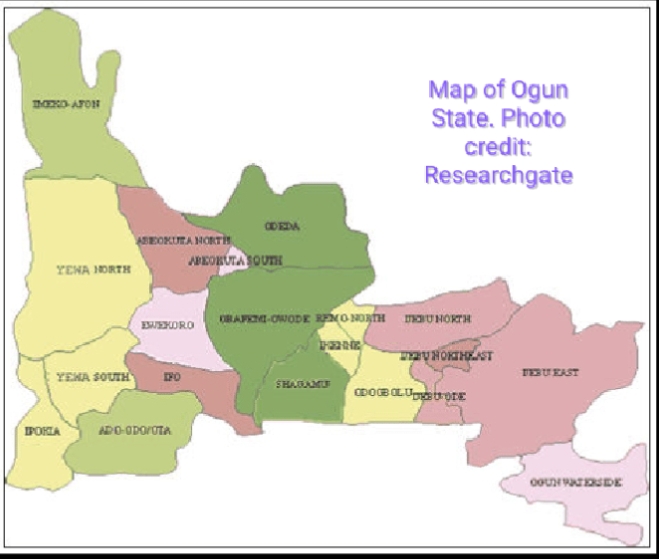








Leave a comment